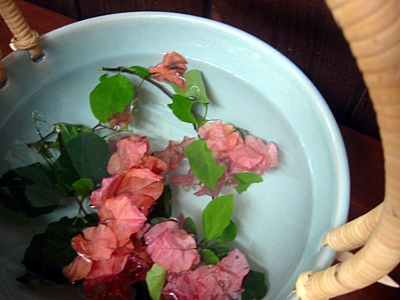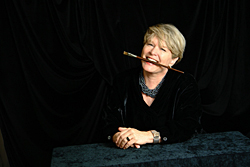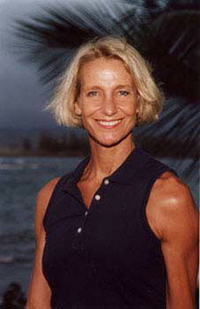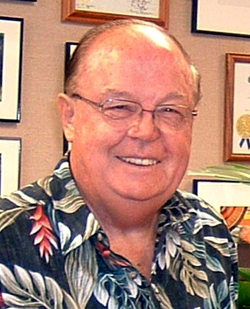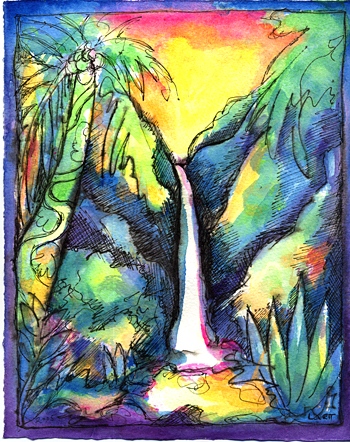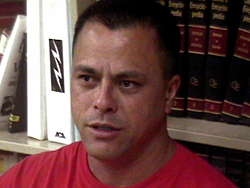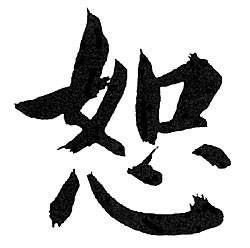|
•
The following individuals were honored as Heroes of Forgiveness at the events in Honolulu, August 7, 2005. free videos PEGGY CHUN Born in Lawton, Oklahoma, award-winning artist Peggy Chun has been a resident of Hawaii since 1969. Peggy's colorful and whimsical artwork captures the "spirit of Aloha" that is Hawaii. In the spring of 2002, Peggy was diagnosed with ALS, also known as Lou Gehrig's disease, the same disease that plagued her mother and her twin sister, Bobbie. Bobbie, who passed away in 1987, was a well-established artist herself and was the inspiration for Peggy to pick up her first paintbrush in 1989. She has been creating ever since. LORENN WALKER Lorenn Walker has lived on her own since she was 14 years old, dropped out of high school at 15, and was adjudicated as a juvenile offender. She put herself through college, law school and earned a masters degree in public health. A life-long surfer, former champion windsurfer, triathlete, wife, and mother of three children, Lorenn is living proof of how to transform conflict into resiliency. JENNIFER AHCHONG CHARLES CLARK "Charlie" enlisted in the U.S. Navy during WWII. In 1945, Charlie received orders to proceed to Nagasaki, Japan, unaware that that city had been flattened with the Atomic Bomb. With no protective clothing and equipment upon arrival, the harbor area and valley were totally devastated with no moving persons, only wind.
STUDENTS OF FORGIVENESS Two men -- Stephen Baker and Larry Brown -- have been recognized as "Students of Forgiveness". Though still in prison at Waiawa Correctional Facility on O'ahu, their personal progress toward forgiveness, and their sharing of new life opportunities with fellow inmates, merits special attention from all who seek hope where at first there appears to be none. Stephen and Larry have submitted statements of their own about forgiveness, which are included below. These stories are incorporated into this year's "Forgiveness Stories" book, a free publication which can be downloaded online at http://www.hawaiiforgivenessproject.org/stories/ These special awards will be presented by Lorenn Walker, one of our Heroes; she works with Larry and Stephen and many others in the Restorative Justice Program and Waiawa. The two men will appear at the festival by video, in short interviews that were recorded at the prison last week. STEPHEN BAKER 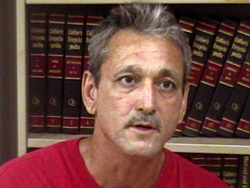
click here to see a short video No human being escapes misfortune. When I was ten years old my father committed suicide by pistol. Then, shortly after my thirteenth birthday, my mother committed suicide by a drug overdose. I was devastated. Many people at the time tried to help me—social workers, teachers. Police officers, judges—but I didn’t want help. I was too busy rehashing both suicides in my mind and imagining how I could have prevented them. I also spent quite a bit of time wondering where God was when I needed him. To deal with my pain, I found alcohol and drugs. To fuel my addictions, I turned to crime. I was busy feeling sorry for myself and I had a ready-made excuse for my behavior; at the height of my insanity I was addicted to heroin and robbing banks. My actions led to repeated incarceration — and a cycle of drugs, crime and prison that spanned 30 years of my life. 2005 found me in prison once again at 50 years old — bitter with the belief that there was no hope for me. The difference was that I at Waiawa Correctional Facility in the Kashbox Treatment Program. I began to talk about my experiences with the death of my parents; I saw the mistakes I had made in life and felt the pain and blame that was still there. In one particular session I broke down and finally grieved, 40 years after the fact. I learned that grief is a process. My first introduction to the “Forgiveness Project” came while attending a program on Restorative Justice. In the class I found closure for my grief though voicing my forgiveness to my parents, to myself, and finally by making peace with God. My soul felt a lot lighter once I forgave—I lost the baggage of resenting, bitterness and self-pity. I now understood that forgiveness freely given is truly a gift to the giver—I felt new. I think back and regret my actions as a drug abuser and criminal -- the people I’ve hurt, how I’ve affected the community. Today instead of taking, discouraging and using people -- I can do the opposite. I can care about, help and encourage others, be kind and decent—make a difference for the better; rejoin the “Brotherhood of Man.” I’m especially grateful to Lorenn and Diane who taught all of us that caring makes a difference—as they showed by example. ...Waiawa State Correctional Facility, O’ahu, Hawaii; July 2005 LARRY BROWN
click here to see a short video My name is Larry K. Brown, Jr. I am 33 years old, and currently an inmate at Waiawa Correctional Facility participating in the Kash Box Program. I'm getting treatment to learn more about my addiction (crystal meth) and my criminal conduct, but most importantly to learn more about myself. During my childhood and early adult years, forgiveness was a way to get back at someone. If someone did something to me, I would forgive them until they thought everything was alright, then I would turn around and do it back to them twice as bad. For me, forgiveness was a tool for retaliation. On January 1, 1981, my dad mom and aunty all got shot. My dad and aunty died. My mom luckily survived. It was a house warming party my dad had thrown for our new house in Waialua. The party started off well. Everyone was having a good time. Family, friends, all together, celebrating the new year to come. I remember sleeping on the parlor floor. Then all I heard was BANG. I heard my mom screaming. I woke up and saw my dad laying on the floor. Then another BANG went off. That's when I got up and ran over to my dad. At that time, I thought the bang sounds were coming from the plastic bag bombs that my dad use to tie at the end of a strand of fireworks. When I ran over to my dad, I thought he was sleeping. He was still alive and breathing at the time, so I tried shaking him to wake him up. He grabbed me in his arms and told me he loved me. I fell back asleep in his arms. The next thing I remember was paramedics lifting me off of him. Then later on that morning, I found out my dad and aunty got shot and died, and that mom was in the hospital fighting for her life. Since my father's death, I have felt nothing but hatred for the man who did this to me and my family. As a child, I carried this bitter anger and frustration through my adult life. My ultimate purpose for living was to meet up with this man someday and pay him back for the pain he had caused. The feelings that I've been carrying with me throughout the years have caused one heartache after another, not only for myself but also for the people who love me. My negative thoughts led to negative behaviors, which led to crime and prison. Today I consider myself lucky to be alive. I was caught up in a vicious cycle of hate that would have almost certainly resulted in death. I have been in the Kash Box program for almost a year and have taken full advantage of its purpose . It has given me the opportunity to tell my story and express my feelings. I have come to realize that the cycle of hate can be broken and that the power to do this lies within me. Forgiveness is a virtue I have never processed until now. My desire is to finally be free of the hate that has prevented me from pursuing the life I was meant to live. Anger has been my greatest obstacle; forgiving the man who took my family from me may be the hardest thing that I will ever do. ...Waiawa State Correctional Facility; O’ahu, Hawaii; July 2005 |
